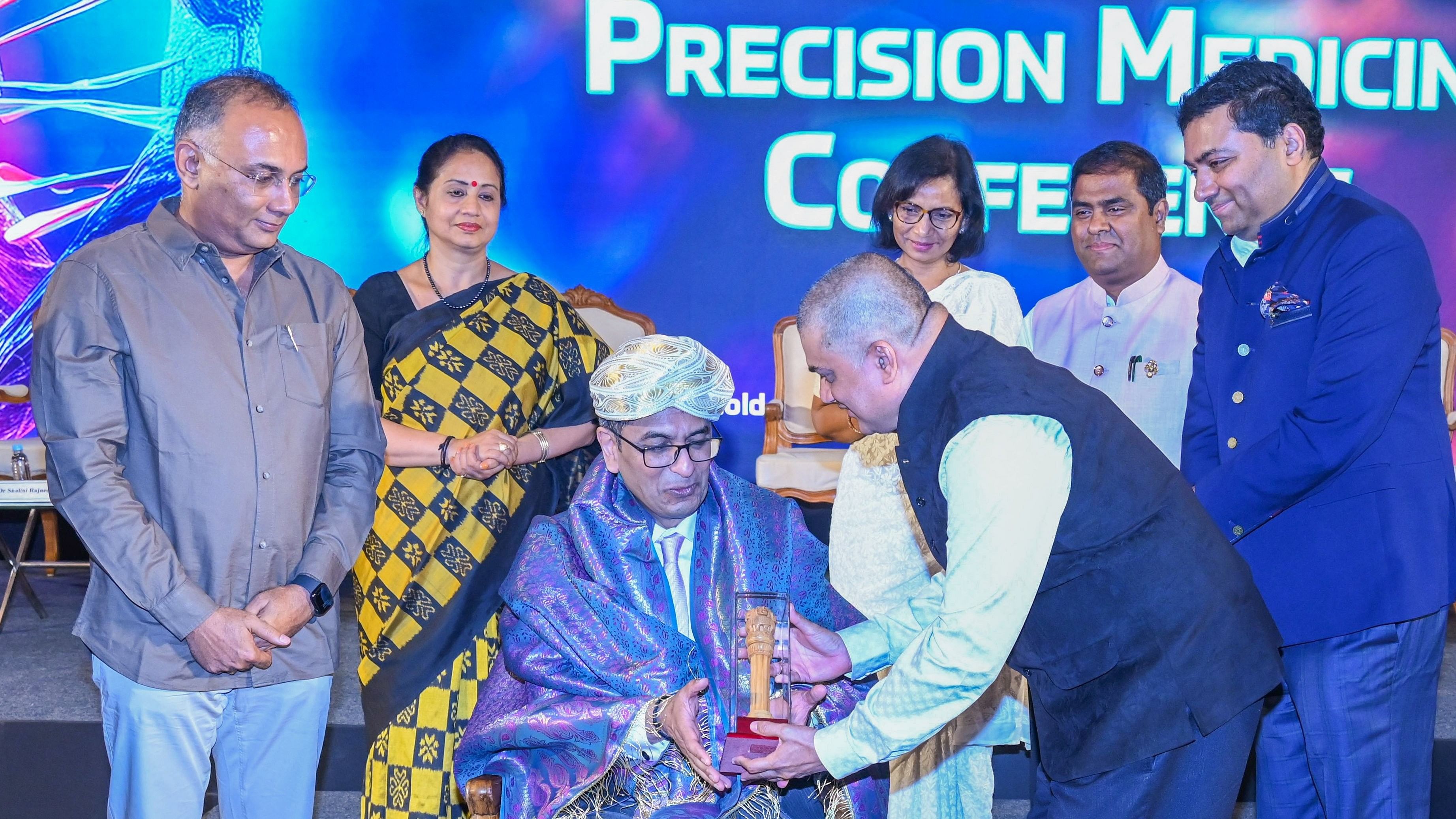
Chief Justice of India D Y Chandrachud was honoured at a two-day conference on gene therapy in Bengaluru on Saturday. Karnataka health minister Dinesh Gundu Rao (left), looks on.
Credit: DH Phot/ S K Dinesh
Bengaluru: Reiterating the right to health, Chief Justice of India
D Y Chandrachud said we must find ways to make precision diagnostics and gene therapy accessible to patients with rare genetic diseases.
The CJI was speaking at the inaugural address of a two-day conference on gene therapy and precision medicine. The event was attended by policy makers, including Karnataka health minister Dinesh Gundu Rao, and scientists and patient advocacy groups.
Rare diseases affect a small percentage of the population. About 95% have no treatment. For the rest, the costs of treatment, which need to be imported, can be prohibitively high (Rs 7 to Rs 30 crore per treatment). The conference emphasised on developing indigenous treatments that are affordable. Narayana Nethralaya Foundation, organiser of the event, aims to bring down the current costs by 100 times. Their lab GROW is working on gene therapy research, from eye to muscular disorders.
While most rare diseases affect young children, the health minister also drew attention to age-related genetic disorders and therefore, the need to devise cost-effective treatment. He said it’s easier for the government to fund diseases that require one-time intervention but many rare diseases require long-term care. “He needs to find ways to fund them. As a government, it is our responsibility (to support such patients) but at the same time, our resources get stretched and priorities come in,” he said.
Emotional challenges of living with genetic diseases came up in the next session. One father spoke about the regret of denying his daughter maggi and chips, fearing it would interfere with the treatment. CJI’s wife, advocate Kalpana Das, spoke about their two foster daughters who have a rare muscular disorder Nemaline myopathy. She shared that their younger daughter at 10 years of age was looking up about gene therapy online. No child should have to worry for their future like this, she said. In the session, rare disease rights activist Prasanna Shirol requested the CJI for clearing patient petitions faster because “the court is often their last hope”.
The subsequent session highlighted “simultaneous action” as most of these diseases are progressive and, thus, time is of essence. From creating cohorts of patients for research to developing cures and building corpus funds, everything must happen simultaneously, said experts.
The CJI also called for “equitable access” to treatment, citing that people from marginalised communities face hurdles in accessing healthcare. He also batted for greater awareness among the public because patients and caregivers tend to suffer from social isolation. We need to focus on scientific innovation but also social well-being and integrity of the patients, he said.
CJI shares a light moment
The CJI was seen having a light moment with 14-year-old patient of spinal muscular atrophy Deeksha Sampath who was attending the conference in a motorised wheelchair. When her mother told him that Deeksha navigates the wheelchair faster than she drives a car he got talking about his daughters who also use the wheelchair. “I tell my daughters it’s not a highway it’s home” he laughed and said.